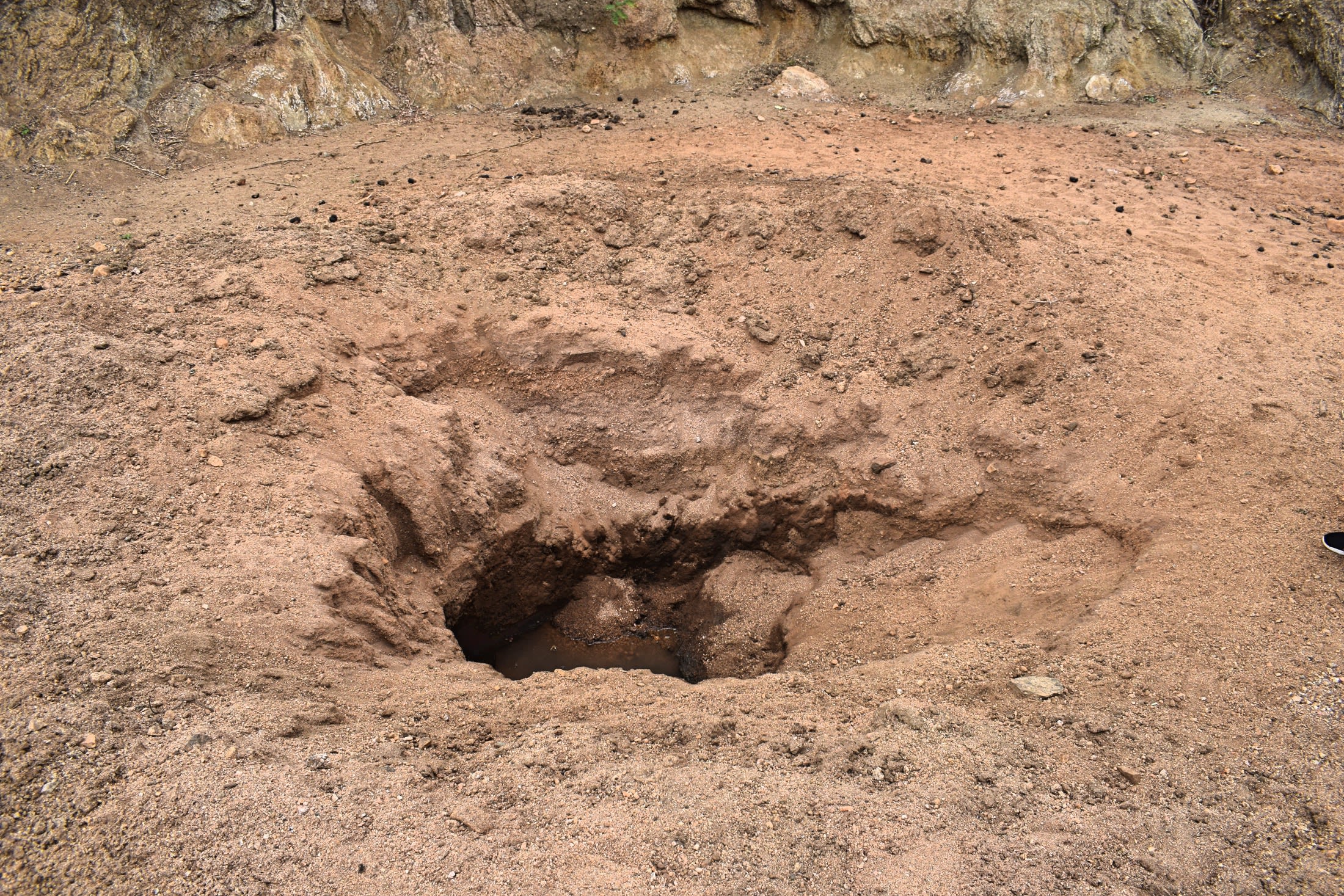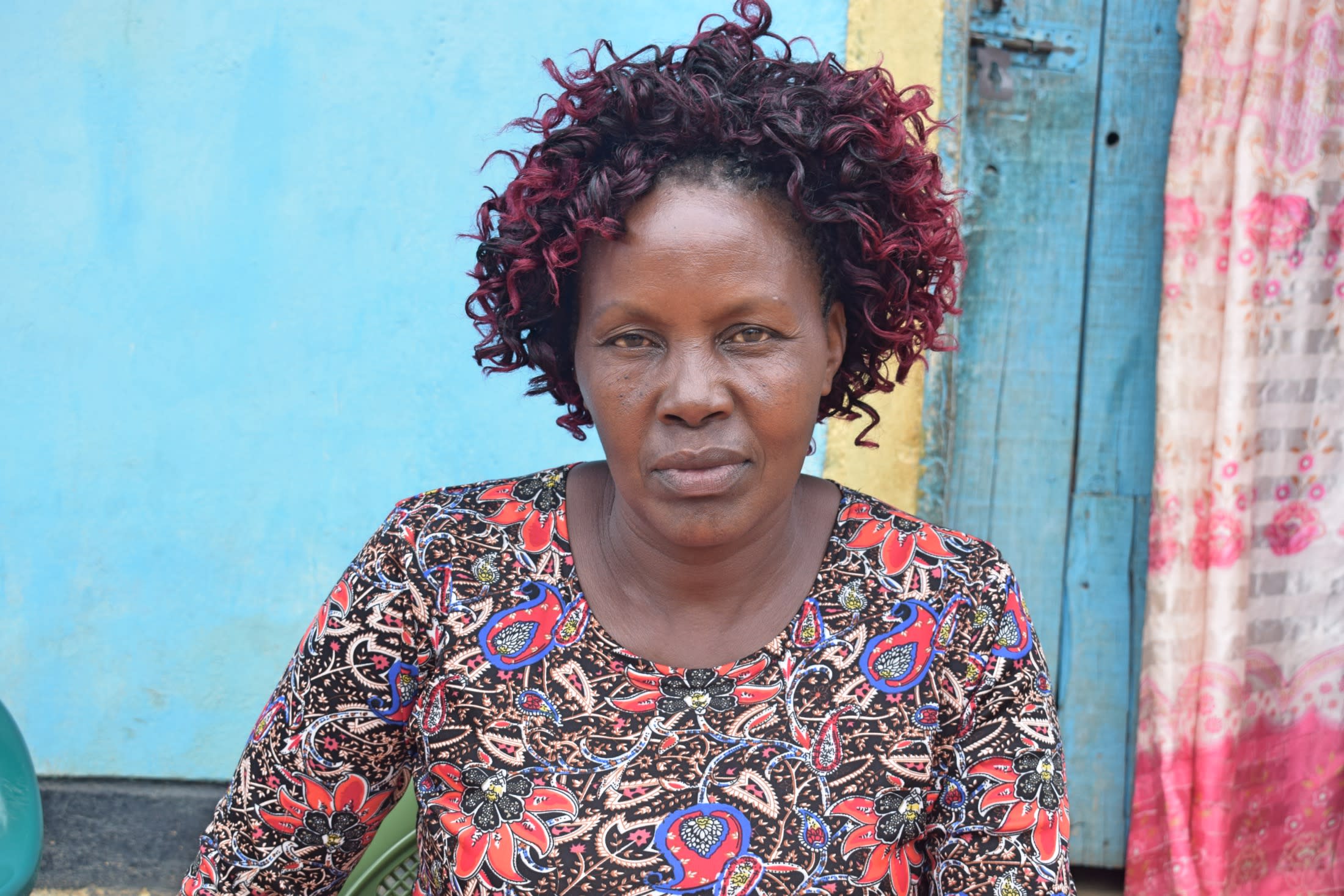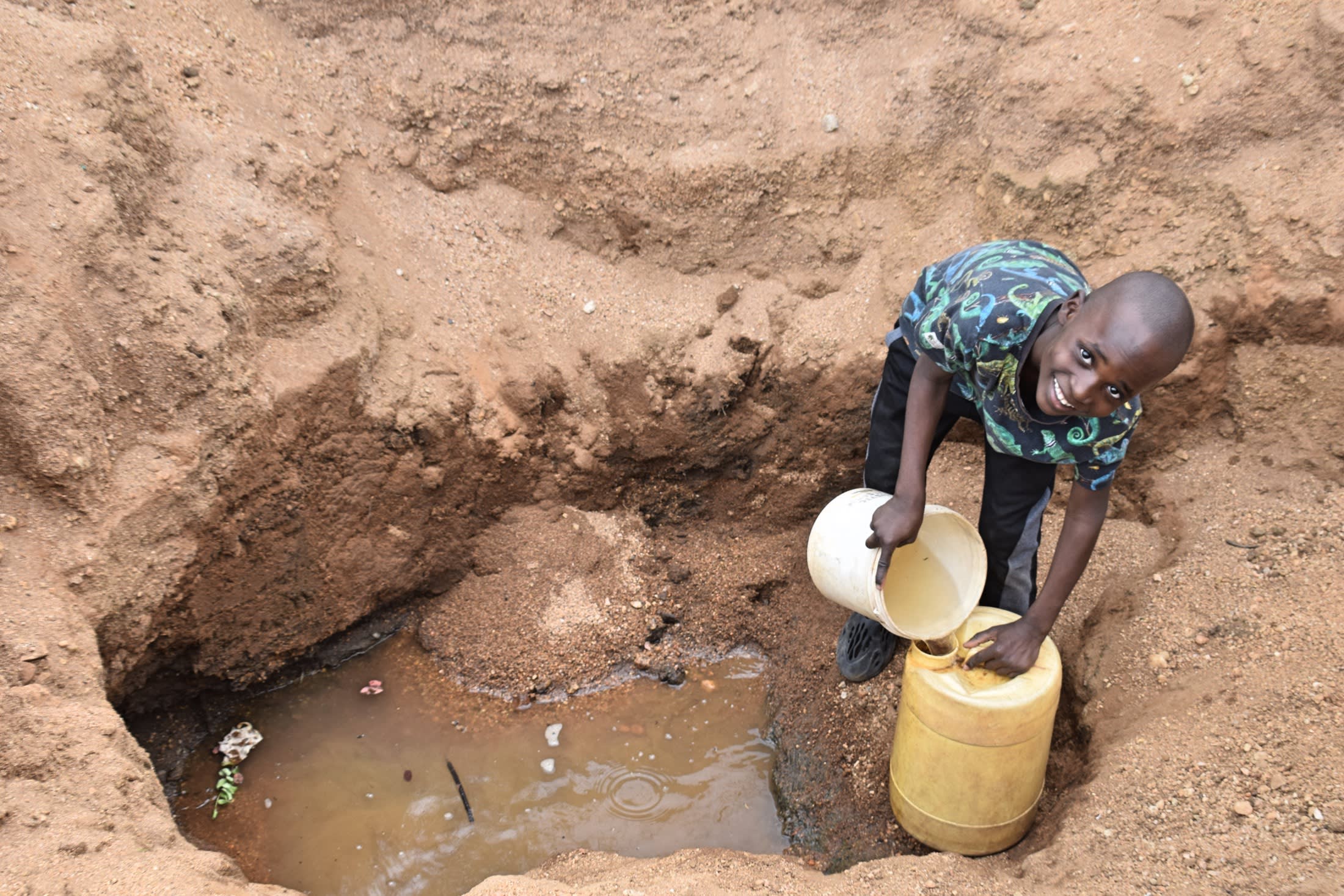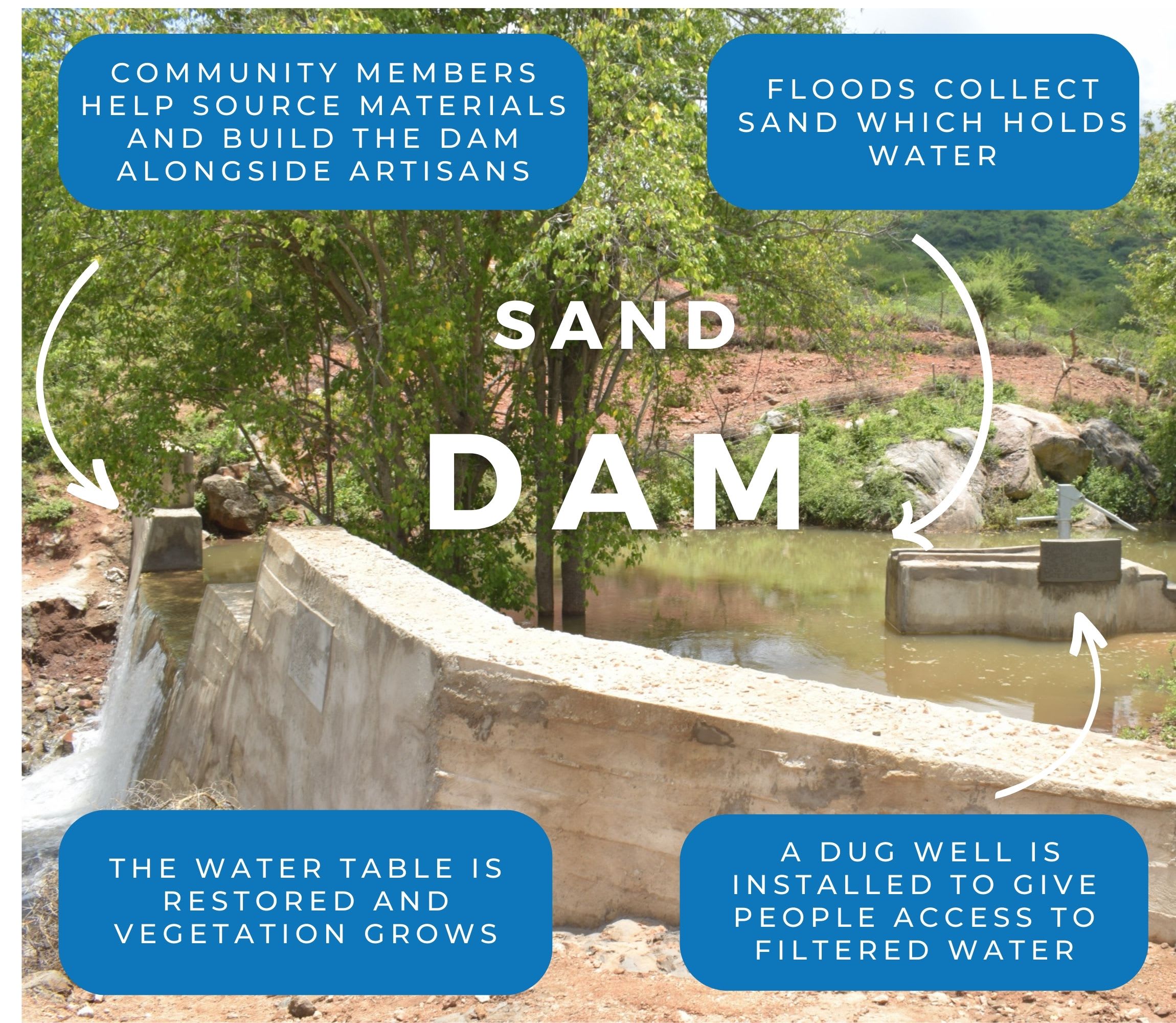The 200 people who live in Ngomeni can never get enough water to meet all their needs because fetching water consumes so much of their time and energy.
The typical trip to collect water takes one to two hours as fetchers must cover kilometers of hilly, arid ground to reach the nearest dry riverbed. There, community members have dug scoop holes into the earth to reach brown, salty water that makes them sick.

"There is inadequate water for drinking or cooking, let alone irrigating crops," said our field officer, Alex. "Thus, residents exhibit poor health. Water [from] the scoop hole is also unsafe for drinking since it is exposed to animal and wind contamination, such as animal excretion and dust."
This incredibly difficult water crisis has compounding negative effects for the people who live in Ngomeni.

"I waste a lot of time and energy fetching water from the scoop hole because it is about four kilometers (2.48 miles) from my home," said 45-year-old farmer Martha Ndunge Syanda (shown in the above photo). "Once in a while, my children complain of stomach upsets and have to be absent from school. Farming yields are mostly low because of the rampant drought and insufficient rainfall. Water also has to be used sparingly at home, which has led to poor hygiene and sanitation."
Because the journey to the water sources takes such a long time, community members are left without much time or energy for farming, which is this area's main source of livelihood. So when water is scarce, they don't have the money to purchase water from local vendors. And when their loved ones are sick, they can't buy medicine.
"There is little water to drink and cook; thus, I usually [have] one meal daily," said six-year-old Daryl (shown below).

"I have also contracted infections like amoeba and typhoid in the past after consuming water from the scoop hole. I also get little time to play with my friends or study because I need to help my mother to fetch water from the scoop hole during my free time."
And in drought periods, accessing water becomes even harder. The scoop holes dry up, and people must travel even farther for water or scrounge up funds that they can't spare.
The people of Ngomeni need a closer water source so that they can reclaim their lost time and health. Water will help them keep themselves and their homes clean, therefore improving their living standards. With these newfound blessings, doors will begin to open for them that they once thought were closed forever.
What We Can Do:
Our main entry point into the community is the Self-Help Group, which comprises households working together to address water and food scarcity in their region. These members will be our hands and feet in constructing water projects and spreading the message of good hygiene and sanitation to everyone.
Sand Dam
After the community picked the ideal spot, our technical team went in and proved the viability by finding a good foundation of bedrock. Now, our engineers are busy drawing up the blueprints.
We are unified with this community to address the water shortage. As more sand dams are built, the environment will continue to transform. As the sand dams mature and build up more sand, the water tables will rise. Along with this sand dam, a hand-dug well will be installed to give community members an easy, safe way to access that water.
Building this sand dam and the well in this community will help bring clean water closer to the many people living here.
Training
These community members currently do their best to practice good hygiene and sanitation, but their severe lack of water has significantly hindered reaching their fullest potential.
We will hold hygiene and sanitation training sessions with the Self-Help Group and other community members to teach essential hygiene practices and daily habits to establish at the personal, household, and community level. This training will help to ensure that participants have the knowledge they need to make the most out of their new water point as soon as the water is flowing.
One of the most important topics we plan to cover is handling, storage, and water treatment. Having a clean water source will be extremely helpful, but it is useless if water gets contaminated when it is consumed. We will also emphasize the importance of handwashing.
The community and we firmly believe that all of these components will work together to improve living standards here, which will help to unlock the potential for these community members to live better, healthier lives.
We typically work with self-help groups for 3 to 5 years on multiple water projects. We will conduct follow-up visits and refresher training during this period and remain in contact with the group after all of the projects are completed to support their efforts to improve sanitation and hygiene.





 Sand Dam
Sand Dam
 Rehabilitation Project
Rehabilitation Project



























